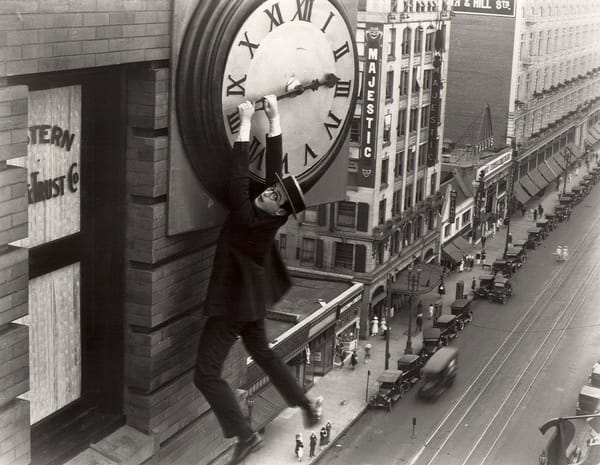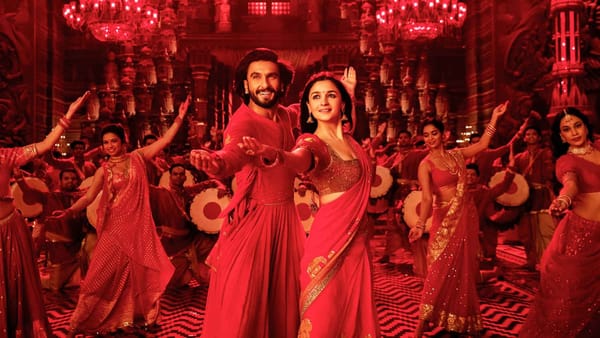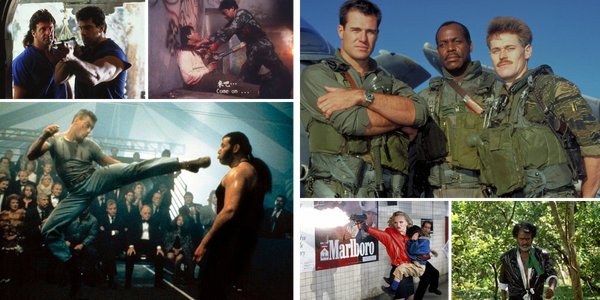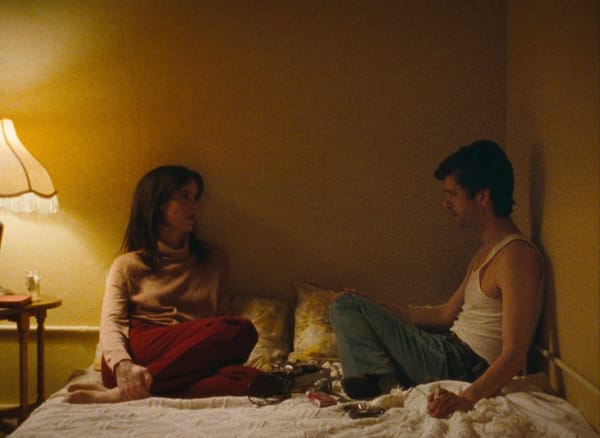Polygon Exit Interview: Clayton Ashley, Senior Video Editor
"I’m glad that even to the end, [quality over quantity] was still pretty much our guiding star"
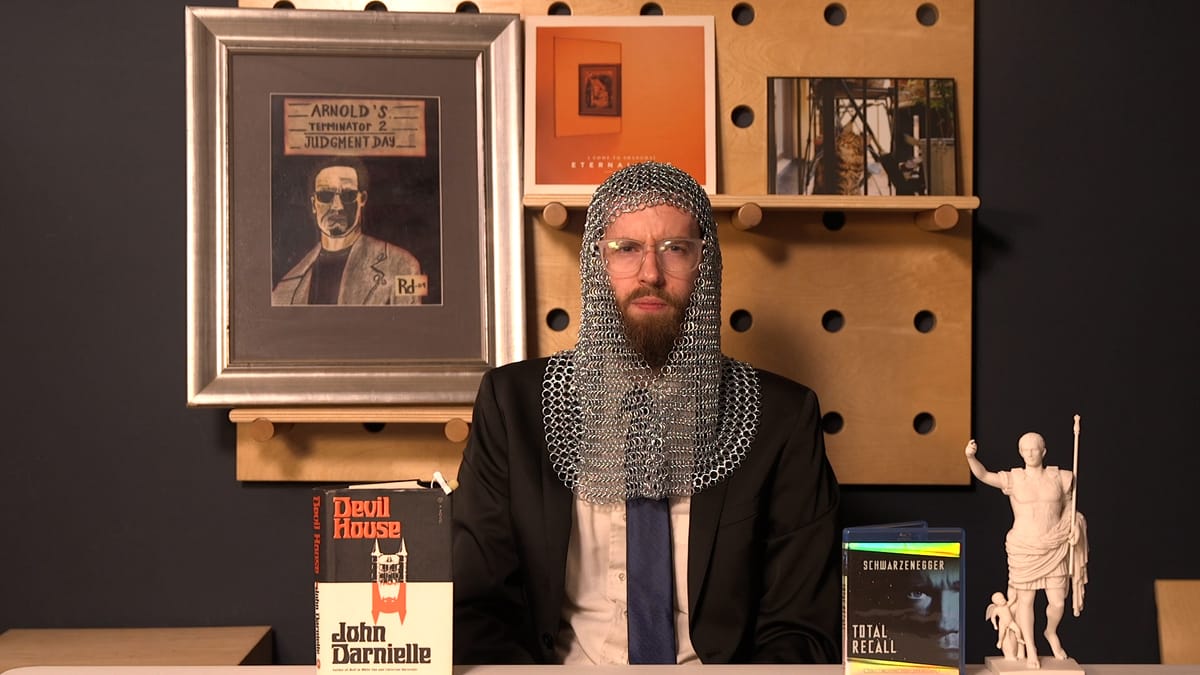
Welcome to Polygon Exit Interviews, a series of chats with my excellent former Polygon employees who were laid off (along with me) when Valnet purchased the website from Vox Media May 1. We’re talking about how these talented people got to Polygon, what they did in their time there, and what they hope is next. I’ll publish most of these in the next few weeks, which will likely result in a higher-than-usual cadence for this newsletter this month.
Next up: Clayton Ashley, a crucial part of Polygon’s award-winning video team. A top-class producer and editor, Clayton was responsible for many of Polygon video’s greatest videos and recurring series, and he also made my job as curation editor easier by being one of the most dedicated sci-fi fans on staff. Along with Simone de Rochefort, Clayton won the Knickerbocker Award at the 2025 New York Game Awards for the documentary The Great Game: The Making of Spycraft. Clayton also was responsible for two of my very favorite Polygon videos: his video on Against the Storm breaking typical city-building game formulas, and his video about logistics and how video games can explain the supply chain crisis.
This interview has been lightly edited for length and clarity.
Thanks for reading PV Guide! Subscribe for free to receive new posts and support my work.

Tell me about your pre-Polygon background.
I was always in digital video. I worked with a political website, I worked with a network of science and tech websites, I had my dalliances with freelancing and permalancing. Right before Polygon, I was at a place called Vocativ. I was there when YouTube was first getting big, and then for the sudden realization that it doesn’t actually earn that much money for a big publisher. I was there for the highs of Facebook video, and I rode that wave all the way to Polygon, because I was originally hired as a social video editor. And it just turned out I could do a lot more things besides that.
What do you remember about first joining?
I actually applied for another job at Polygon, but if I’m not mistaken, Simone de Rochefort got it. Which was fine, because it was more of a front-facing video producer role. When I saw that social video editor job posting, I was like OK, I am going to make this work. I think I have a good shot at this role. I remember part of it was a request to edit a news package about what we knew about the Nintendo Switch at the time. I put a ton of effort into animating something to look really slick. And I was told that is really what pushed me over the top in terms of getting the job.
I had a job, and I wasn’t looking to leave it, unless there were some really extenuating circumstances, like a dream job like this at Polygon. And I got that call. That made me feel like Oh, I did make it.
Can you run me through your history at Polygon?
I started with Facebook video, because that was the main kind of social video at the time. It was editing things that were short form, with no audio edited because people would probably not even turn on the audio. So it was a constrained editing experience. But I had the animation experience, so one of the first things I did was animate one of our podcasts. That opened the door to me being able to assist and pitch in on other things, and that kept expanding to editing video series. Eventually I was doing things like editing Monster Factory, which was a huge honor, honestly.
At one point, they asked You have an interest in board games, right? I said Yeah, definitely, I would love to launch a board game show. We were trying to move in on that coverage area, and that led to the launch of Overboard.
Then there were those moments that changed Polygon video, losing some faces. I remember when the McElroys left, and it was kind of like What are we going to do next? There were some pivots, and some of those worked, some didn’t. There was a time when we were doing a lot of series at Polygon. The idea was you could build up a catalog on YouTube, and then somebody becomes a fan of that. Now they have 20 more videos to watch. There was definitely a strategy there, but it’s a long, hard slog, and then the moment YouTube’s algorithm changes, that plan kind of changes as well.
I think it was around this time that Brian [David Gilbert] and Jenna [Stoeber] joined. We were still in the midst of this pivot, figuring out what works on YouTube. We got a bit of a top-down refocus. We’re not trying to get a video out every week for a series. We’re not trying to hit the grind. We’re actually going to take our time, quality over quantity, work on things that interest you, that you’re passionate about. We had a rubric, because it had to be informative. You want the audience to learn something, to leave the video having gained something they didn’t have before.
Originally, Unraveled was something that didn’t fit into this exactly. But Brian and I just shot it anyway, and you know where that went. But this idea of less is more, quality over quantity,did eventually work for us. It was something we enjoyed doing, and it was something that was appealing on YouTube. But of course, it doesn’t matter what your strategy is if YouTube changes, if the whole digital market changes. There are obviously new competitors where people watch videos. And I’ve got to give [social video producer] Tina [Gayton] a shout out. She had a relatively short career here compared to some of the others, but she just killed it on TikTok.
Digital video, it’s going to change constantly, and the unfortunate fact is that YouTube, what pops there has definitely shifted. Does the quality over quantity strategy still work? It’s hard to say. But I’m glad that even to the end, that was still pretty much our guiding star.
How did your style as a video producer and editor develop during your time at Polygon?
I prefer to be behind the camera. I was way more shy early on, I felt awkward having to be in front of the camera, but it turns out being around a lot of funny, good people rubs off on you. I at least figured out how I liked to be on camera. It definitely worked alongside our strategy of “talk about what you’re interested in.” I found I could actually talk about that for a good long time, and I could be excited about it, especially when I got topics I could really dig into. Pat [Gill] would always talk about when you have an idea and you’re not sure how to approach it, how would you talk to a friend about it? You’re really excited about something, and you want them to understand how cool it is. You just talk to your audience like they’re your friend and you’re excited to share this information you have with them.
Brag about yourself: what’s one thing you’re proud of from your time at Polygon?
Overboard was pretty much my baby from the beginning. That’s not to say I didn’t have a lot of help, but I had to figure out what we were doing, set it up, figure out guests, figure out the actual video, shoot it, and edit it to a place of the kind of quality we want. That was a lot because, minimum, we had four people on camera, usually multiple camera shoots, trying to weave that all together into a piece. And there was always this sort of Polygon personality I tried to give it, so that I feel very good about.
The other one is the documentary that came out last year, The Great Game: The Making of Spycraft, which I made with Simone. Three-and-a-half years of work went into that feature length documentary. That really enjoyable side of researching something in-depth and then also getting to talk to a bunch of interesting, smart people is something I enjoy with all my videos, and I’m always shocked at the range of people I got to talk to for this job. But this documentary in particular was reliant on smart people talking, and we got that in spades.
It’s tough to get views for something that long on YouTube, but I pretty much only heard back from people who were blown away by it, totally unexpecting a documentary about a video game to have so much real world history in it. I hate to think about a piece of art like this, but I’ve taken this from video games, the idea of the Halo game loop, every 30 seconds they should be doing something fun and incredible. I had to think about the shift from a YouTube video to an almost hour-and-a-half long documentary. If I’m not giving the audience something every 30 seconds on YouTube, they can click away. So I had to think about that in terms of making a documentary, but also making sure it’s something that is different from our YouTube videos in terms of taking its time and giving space in moments that deserve it. So it was kind of unlearning what I had learned, but also taking what was good and useful for that sort of project. I couldn’t be happier with how it turned out.
Everyone pitched in across sections at Polygon. What’s a time where you did something outside of your core job responsibilities that you enjoyed?
It was actually really nice to be able to write when I wanted to at Polygon. The thing I was most proud of was a big guide to getting into Gunpla. Basically, I would have liked something like this, something that sort of sat me down and explained what Gunpla is, why people like it, and how you do it. It felt good to put that out there. There’s a reason people have so many plastic models in their houses, and it’s not just that they look cool. There’s actually something to the building process that I want people to also enjoy.
Do you have a favorite Polygon story or video by someone else?
That’s an unfair question, because there’s way too many. I could point to Tina being Mario for a week, which was just an incredible thing. I love a ton of Pat’s videos, especially his video about Starship Troopers and Helldivers, because Starship Troopers is one of my all-time favorite films, and he really did a good cultural critique of that. His massive video about Call of Duty was just an incredible piece that is hilarious, profound, and really well-researched. That kind of stuff is emblematic of Polygon to me.
And then, same token, Simone’s videos. She had such a range. Even just recently, she did this incredible video about cards that sort of launched from Balatro and Solitaire, and ended up a really in-depth exploration about cards. She did one about the French Touch, which is really incredible.
Jenna was always so good at drilling down on some of those little gameplay elements you don’t think much about, like the HUD or walking animations, and then blow it up. They’re incredibly researched videos that I took a lot of inspiration from. And then, of course, Brian doing Unraveled, but I also liked it when Brian would just sit down and make a video about enemies that have eyeballs in their hands.
What do you think is the biggest misconception that people outside the industry have about the work?
It might be surprising how much work went into one of the videos. The care we took into pre-production, pitching, and then whittling that down into a script that had editors, and then table reading. Table reading was such a massive thing. I’ll always envy any place that has the chance to do a table read where creative people you trust and work with give you honest critiques to make it better. I cannot fathom what my videos would have been like without that.
And I also think professionalism and ethics. There’s a wide range between what I see in video – YouTubers supported by sponsorships that they are supposed to disclose, but sometimes don’t – versus the way we had to very specifically follow certain rules about fair use and copyright, but also how you report things, how you say “allegedly,” these little important things that are from the fact that Polygon was a journalistic institution. So you had that grounding of needing to know that what you’re saying has evidence.Are you sourcing this, is this your opinion? If it’s your opinion, is that clear? These little things that hopefully weren’t super evident, because you don’t want to get in the way of what you’re trying to say. But I don’t think people will know how important it was until it’s missing.
What’s your wish for the future of the industry?
Every workforce would have a union. I don’t think anything can improve things better than that, whether it’s having the benefits or pay they deserve, or having some influence on the direction of the publication.
What’s next for you?
I wish I knew. I’m open for tips and openings, but luckily because of the union, I have time to figure things out and decide what I’m going to do next. Will that be in video games or games-adjacent? Who could say. I know I have to admit to myself that if I weren’t in video games, I would probably wish I had more time to play and think about video games, because that’s what happened to me in my other jobs. I know it is a thing I think about, whether I like it or not. So we’ll see.
[Ed. note: Since we chatted, Clayton published a preview of the city builder Anno 117: Pax Romana on his personal blog.]
Where can people follow you and your work?
I’m on BlueSky, and you can find me doing a podcast with my buddy Mattie Lubchansky. It’s called Temporal Cultural War, and it’s about people’s least favorite Star Trek series, Enterprise. The important thing to note about it is the first episode came out September 22, 2001. Heady, heady days for America, and it was surprisingly one of the most interesting Star Treks just to follow as a cultural product of its time. Every Star Trek series is definitely a cultural product of its time, and reflects the anxieties and thoughts of the people of that era. As much as I can’t say Enterprise is a great show, it’s fascinating to see it evolve in this era. What we do in the podcast is talk about the episode of the week, but also what was in the box office that week, what the music was on people’s radios, what the other TV shows were that were doming the ratings instead of Enterprise. We’ve uncovered some interesting things I like thinking about media and the context of the era it was made and originally enjoyed.
Thanks for reading PV Guide! Subscribe for free to receive new posts and support my work.

